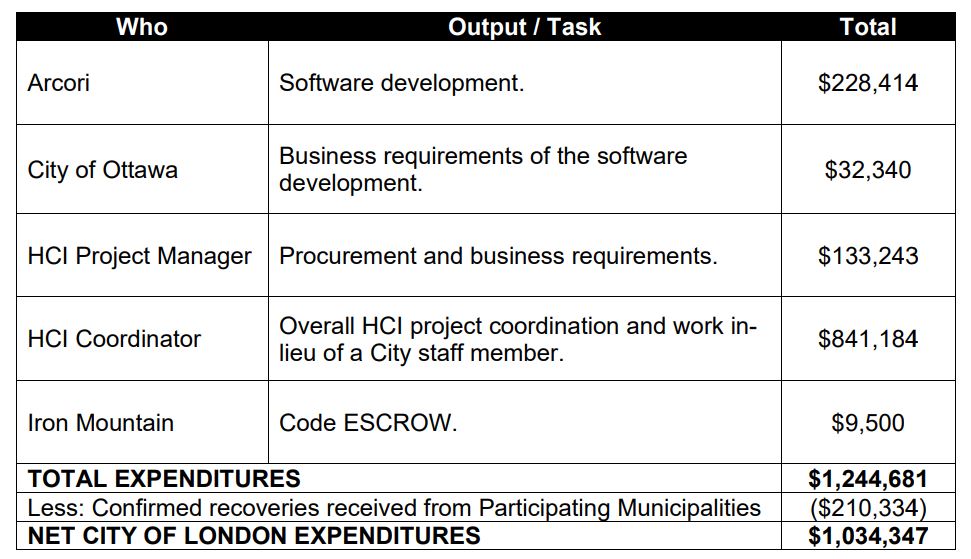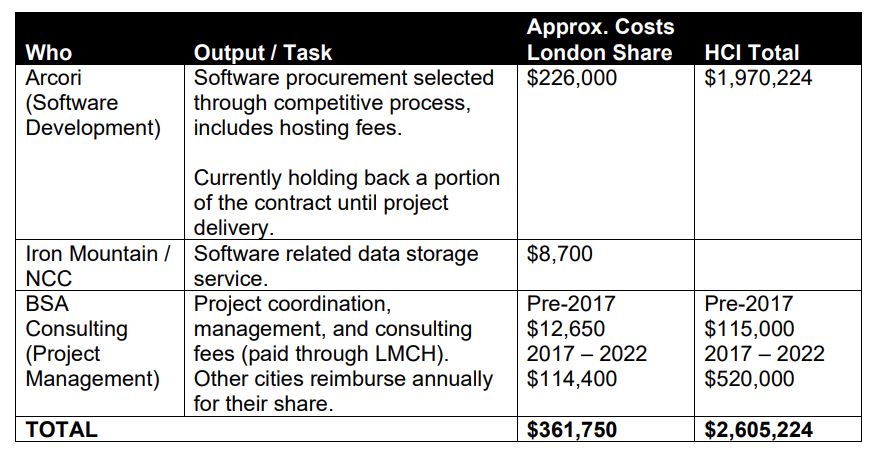City staff in London, Ont., are recommending that council pull out of a social housing software consortium that it spearheaded roughly a decade ago, but has cost the city over $1 million with little to show for it.

Members of the Community and Protective Services Committee will receive the staff report on Tuesday, which recommends the city close out its remaining financial obligations in order to exit the consortium and instead work on its own internal plan to manage housing data.
“My personal view is I have no idea why it takes almost a decade to come forward with a project on something as important as managing housing,” said Mayor Josh Morgan. “And so for me, this has been a frustrating process to watch unfold over the last little while.”
The idea for the custom software project began in December 2011 with London taking the lead to form a consortium of service managers with Windsor, Hamilton, Waterloo, Chatham-Kent, York, Halton and Ottawa, dubbed the Housing Collaborative Initiative (HCI). The project was confirmed in 2014 when the regions’ service managers signed an agreement to develop the software.
As of May 2023, only Hamilton and Waterloo had rolled out portions of the software while York had exited the consortium entirely. London had a “version” of the software and said, at the time, that it was in the midst of a “preliminary assessment” before “embarking on a full testing plan.”
Also at that time, city staff estimated the municipality’s portion of the $2.6 million spent on the project at just $361,750, however, that number has ballooned to $1,034,347 in the intervening months, with $841,184 of the expenditure going to the HCI coordinator ($210,334 of which has been recovered).

Get daily National news
“Civic administration is still working with the Governance Group to validate all amounts owing from other municipalities and ensure that they have been invoiced and collected,” the staff report reads.
“The City of London has recovered $210,334 from HCI Governance Group member municipalities for work completed by the HCI Coordinator. The remaining $630,850 has been borne by the City of London. These costs have been incurred over 7-years and are supported by a series of cost-sharing agreements, that are interrelated.”
The staff report also states that all members of the HCI “have an interest in closing out he consortium and moving to focused implementation within their municipalities” with a goal of completing “all remaining tasks in 2024.”
“I would say although this is $1,000,000 — which is an incredible amount of money and should be taken very, very seriously. It was over a decade and spread across a number of different pieces. I wouldn’t say all of it should be considered a loss,” said Morgan.
“I think those initial costs were always going to have to be borne to see if there was a common software platform that could be developed. Now, I would say later in the process, I would just absolutely agree that… the plug probably should have been pulled long ago.”
Morgan also stressed that he believes this is a unique situation and not indicative of any widespread issues throughout the municipality.
Still, while staff recommend exiting the consortium, the report reaffirms the need for a streamlined system to reduce administrative load for social housing providers.
“In fact, as the complexity of the sector increases and housing properties continue to age, connected information systems that can produce necessary business reporting may be more important moving into the future.”
The controversial project had been largely forgotten until this past spring, with city council receiving no updates at all between 2015 and 2023. In May 2023, director of municipal housing development Matt Feldberg (whose tenure in the position began Nov. 2022) suggested to the Community and Protectives Services Committee that decision-making had largely been left to the governance group, of which London and Halton act as co-chairs.
Members of the Community and Protective Services Committee will discuss the staff report on Tuesday afternoon.










Comments